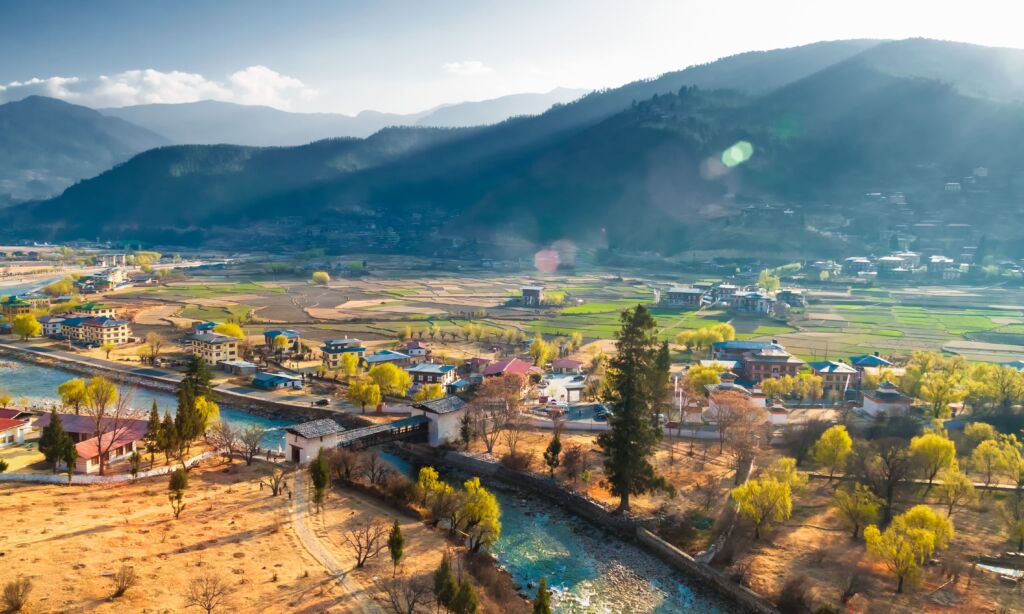High in the Himalayas, nestled between the giants India and China, lies Bhutan, a kingdom unlike any other. Often dubbed the “Happiest Place on Earth,” Bhutan prioritizes Gross National Happiness (GNH) over the more traditional Gross Domestic Product (GDP). This unique philosophy emphasizes spiritual well-being, environmental conservation, cultural preservation, and sustainable development. But what exactly makes Bhutan so special? Let’s embark on a journey to unveil the secrets that contribute to the Bhutanese people’s renowned happiness.
A Slow and Serene Pace: A World Away from the Bustle
Step into Bhutan, and you’ll immediately feel a shift in pace. Unlike the frenetic energy of modern metropolises, Bhutan’s capital, Thimphu, boasts a laid-back charm. Shops leisurely open their doors after 10 am, and the air vibrates with a sense of tranquility. Crime rates are exceptionally low, a testament to the strong sense of community and the prevalence of Buddhist values. Public healthcare and education are free, further contributing to the overall well-being of the Bhutanese people. This focus on social welfare ensures a basic standard of living for all, removing a significant source of stress and anxiety often prevalent in fast-paced societies.
Bhutan’s Breathtaking Embrace: Nature and Spirituality
Bhutan’s breathtaking natural beauty plays a pivotal role in its happiness quotient. Lush valleys, snow-capped peaks that pierce the clouds, and pristine rivers carving their way through the landscape paint a picture of serenity. The country boasts a constitutional mandate to maintain at least 60% forest cover, a commitment that reflects their deep respect for the environment. This dedication to conservation ensures clean air, abundant resources, and a thriving ecosystem – all essential ingredients for a healthy and happy life.
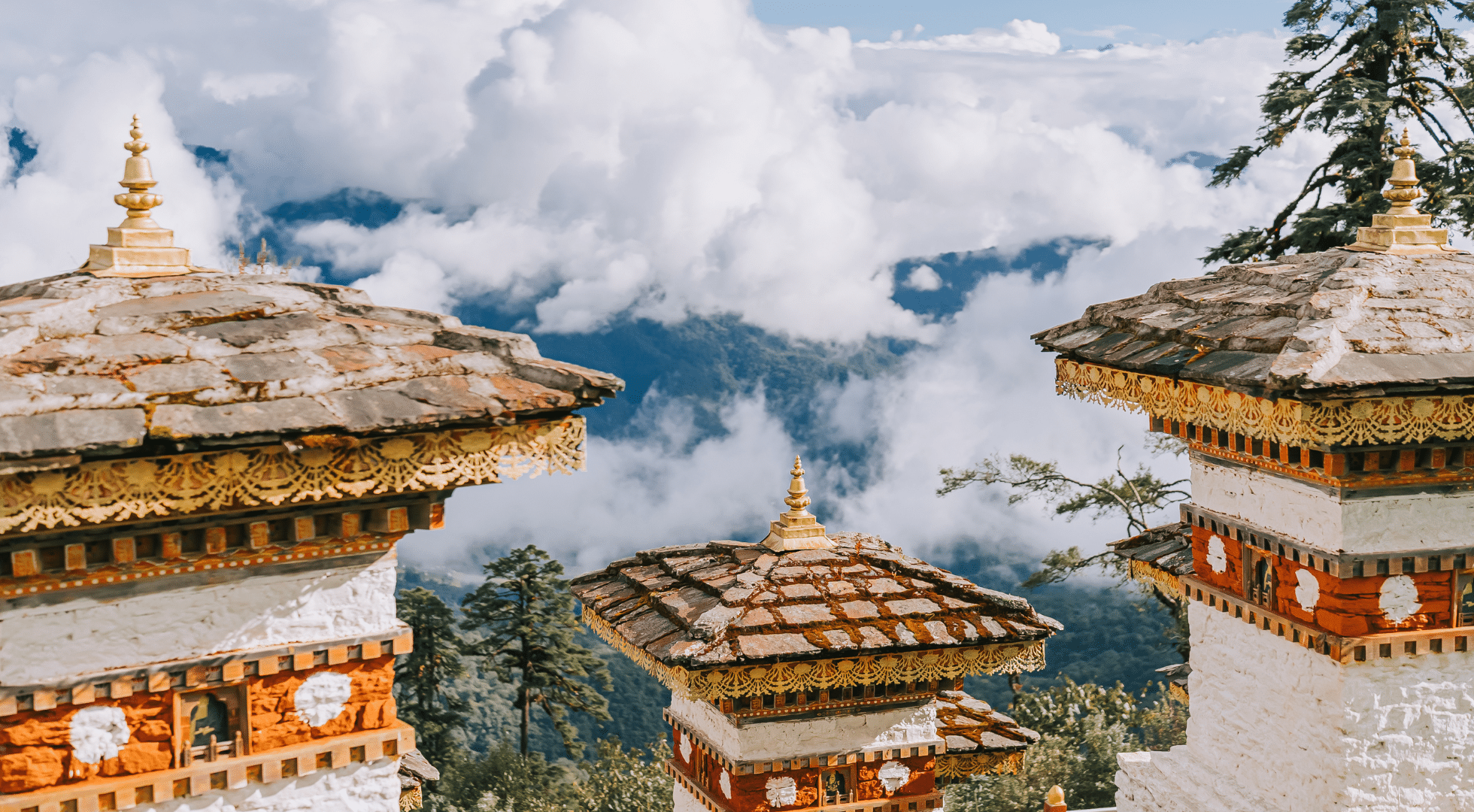
Vajrayana Buddhism, the state religion, serves as the bedrock of Bhutanese culture. The reverence for deities is evident in the numerous monasteries, temples, and stupas that dot the landscape. These architectural marvels are not just places of worship, but also serve as centers for education, community gatherings, and artistic expression. Colourful prayer flags flutter in the wind, carrying mantras that are believed to bless all living beings. The daily practice of meditation and prayer fosters inner peace and a connection to something larger than oneself.
Karma, Rebirth, and Compassionate Living: A Guiding Light
The concept of karma (le judre) and rebirth significantly influences the Bhutanese way of life. This belief system emphasizes that past actions shape the present, and present actions shape the future. It encourages mindfulness in thoughts and deeds, promoting a positive outlook and a desire to accumulate good karma for a better future or next life. This philosophy doesn’t dwell on negativity or punishment but instead focuses on self-improvement and positive action. Additionally, the belief in rebirth fosters compassion for all beings, as they could have been loved ones in a past life. This translates into a more harmonious and supportive society, where individuals are less likely to engage in conflict and more likely to help those in need.
A Culinary Adventure: A Taste of Bhutan
Bhutanese cuisine is a vibrant tapestry of flavors and textures, reflecting the country’s rich cultural heritage and agricultural bounty. Red and white rice form the staple of most meals, accompanied by an array of side dishes (curries) made with local vegetables, meat, or a combination of both. Ema datshi, the national dish, is a spicy stew made with chilies and cheese – a must-try for any visitor. Momos, steamed or fried dumplings with various fillings, are a popular street food found across the country. Buckwheat and corn are also widely consumed, adding variety to the Bhutanese diet.
Beyond sustenance, food plays a significant role in Bhutanese culture. Traditional dishes are often prepared for festivals and religious ceremonies, creating a sense of community and togetherness. The act of sharing meals with family and friends strengthens social bonds and fosters a sense of belonging.
Festivals and Celebrations: A Tapestry of Color and Joy
Bhutanese culture bursts with vibrant festivals, ceremonies, and communal activities, most with Buddhist roots. The annual tshechu, celebrated on the 10th day of a lunar calendar month, is a highlight. Each district holds its own tshechu, showcasing traditional music, masked dances with deep religious significance, and lively archery competitions. These festivals provide a platform for cultural transmission, keeping traditions alive and fostering a sense of national identity.
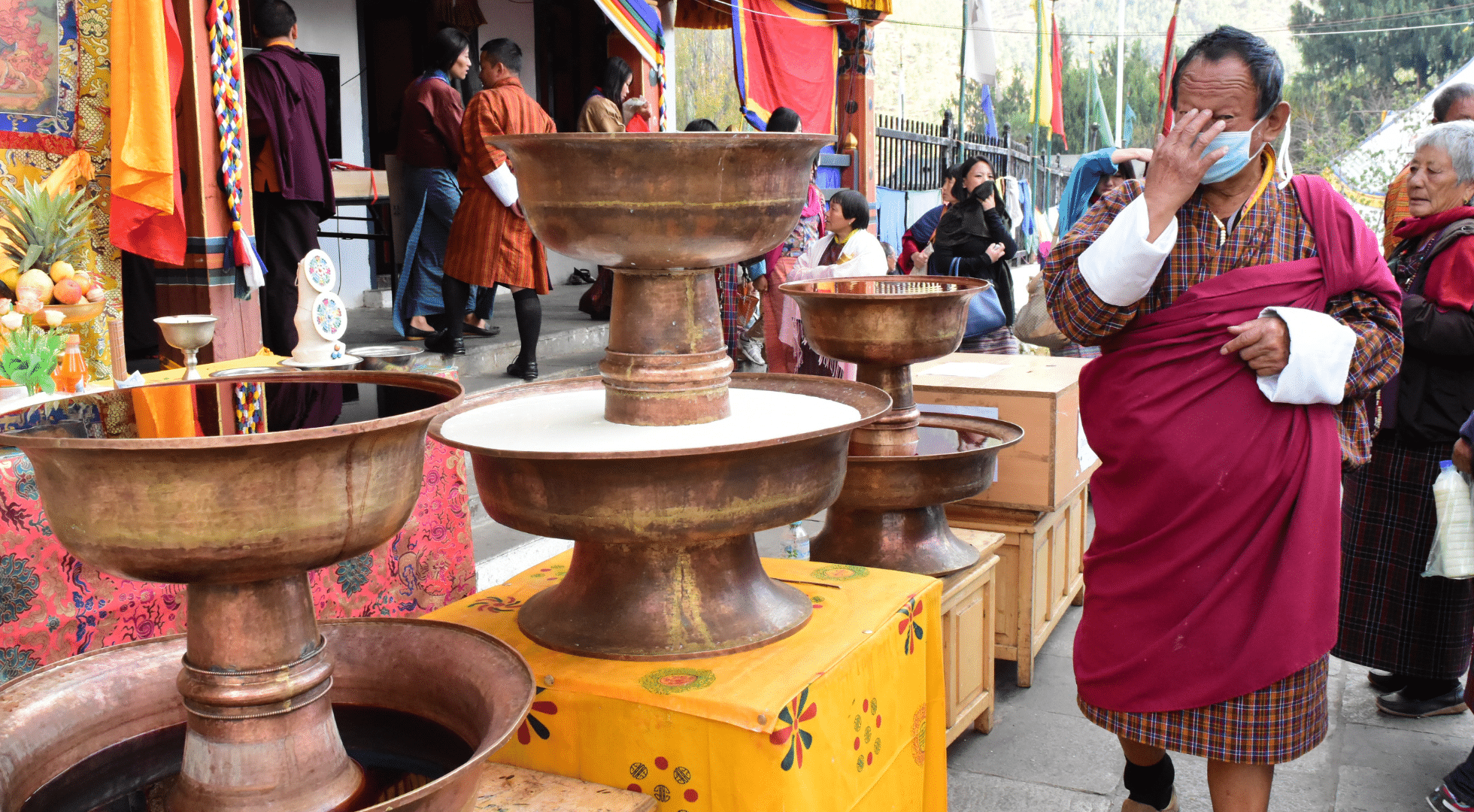
New Year’s celebrations follow the lunar calendar, offering another opportunity for merrymaking and family gatherings. Western Bhutan observes the winter solstice as their New Year, adding a unique regional touch to the festivities. The Drukyul’s Literature Festival, promoting Bhutanese literature, culture, and art, is another noteworthy event. Traditional Bhutanese music and dances (as well as a taste of local ara, a rice wine) form an important part of these festivities. The haunting melodies of the dramyen (a large rebec) and the rhythmic beats of the nga (cymbals) create a unique soundscape that resonates with the soul.
Strong Family and Community Ties: A Pillar of Support
Traditionally, multiple generations cohabitated in Bhutanese households, fostering close family bonds and a strong sense of community. However, with increasing urbanization, nuclear families are becoming more common. Despite this shift, respect for elders remains a cornerstone of Bhutanese society. Marriage is a private affair, with couples traditionally cohabitating and registering the union after having a child. Though elaborate ceremonies are gaining popularity, marriage remains a personal choice, with the law permitting a maximum of three marriages.
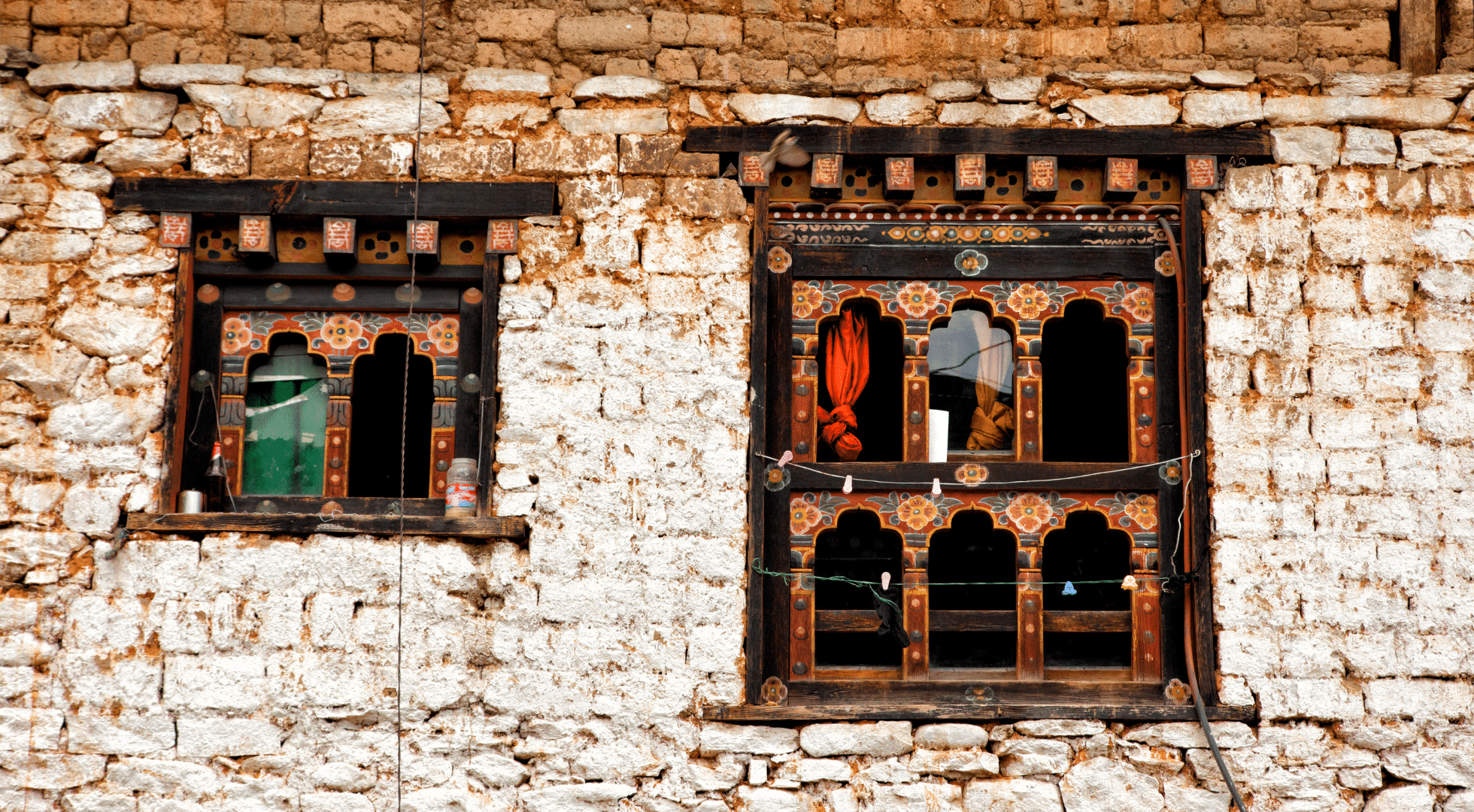
The concept of Tasha Delek, which translates to “auspicious wishes” or “good luck,” is a common greeting in Bhutan, reflecting the genuine warmth and hospitality of the Bhutanese people. A strong sense of community provides a safety net, ensuring that individuals are looked after in times of need. This social support system contributes significantly to the overall well-being of the Bhutanese people.
Sustainability: A Way of Life, Not Just a Buzzword
Sustainability is deeply ingrained in Bhutanese culture. From recycling plastic containers at home to passing down heirloom textiles from one generation to the next, the Bhutanese avoid waste. Worn textiles are repurposed into mats or foot covers, demonstrating a deep respect for resources and a commitment to reducing their environmental footprint. This respect for the environment also stems from their belief in spirits residing in natural features like mountains, rivers, and gigantic trees. Bhutan’s rich biodiversity and fragile mountain ecosystem further drive their commitment to conservation. The country has pledged to remain carbon negative, a remarkable feat in today’s world.
Land of Myths and Legends: A Realm of Intrigue
Bhutan is steeped in folklore and superstitions, adding a layer of intrigue to its already captivating culture. People consult omens before starting new ventures or entering new homes. “Spirit catchers,” small bamboo structures adorned with colorful threads, are used to ward off evil spirits. These traditions, passed down through generations, offer a glimpse into the rich tapestry of Bhutanese beliefs and add a touch of magic to everyday life. Interestingly, Bhutan boasts greater gender equality compared to other South Asian countries. Property inheritance often favors daughters over sons, and women play an active role in various aspects of society.
Spiritual Sanctuary: Finding Peace in the Himalayas
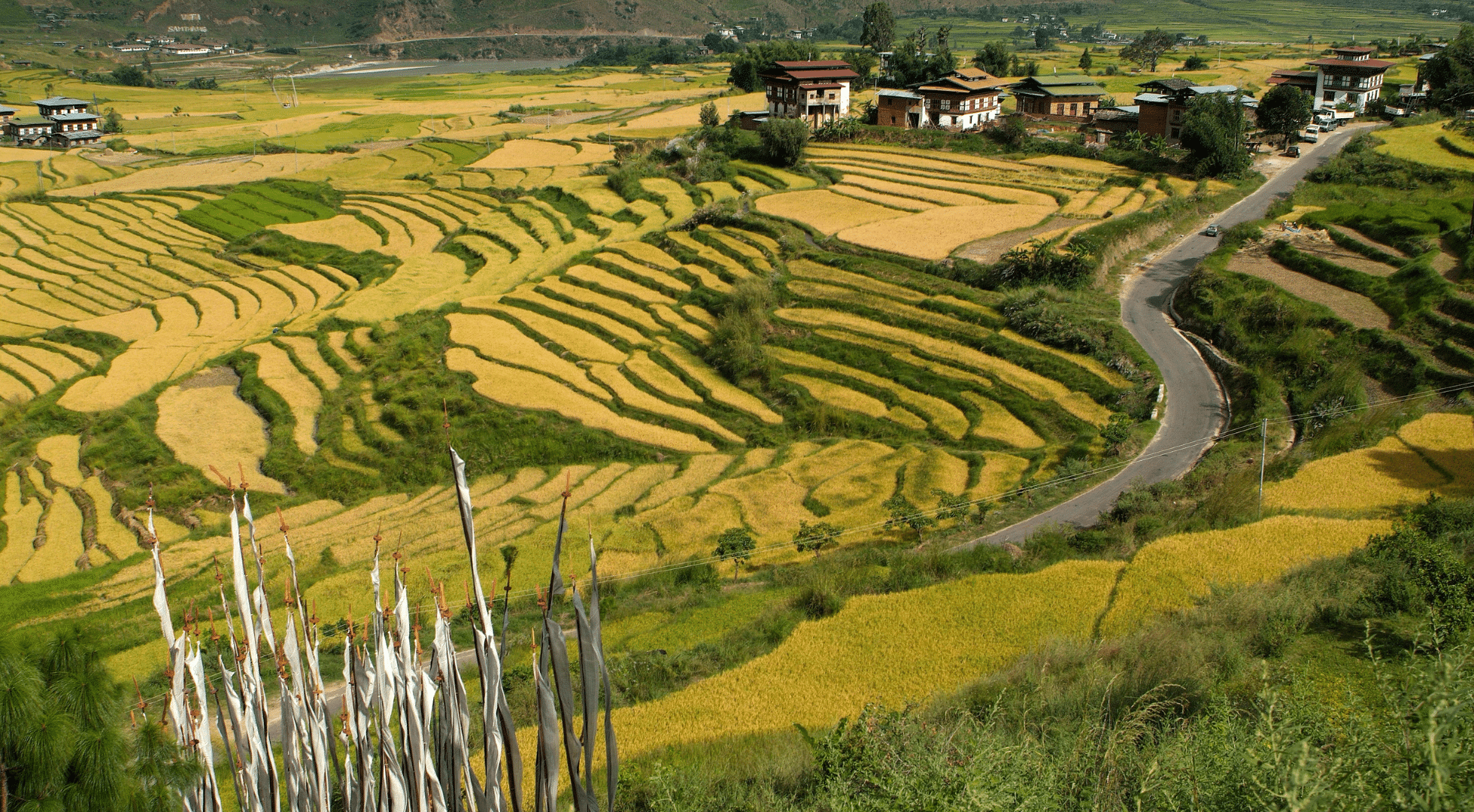
Bhutan exudes a palpable spiritual energy. The serene natural beauty combined with strong religious faith creates an ideal environment for wellness retreats. Meditation and mindfulness practices, core Buddhist values, are gaining traction globally as mental health receives due attention. Many Bhutanese hotels offer wellness packages combining spa treatments with traditional Bhutanese healing techniques that have been practiced for centuries. Yoga retreats are also becoming increasingly popular, allowing visitors to connect with their inner selves in a breathtaking setting.
National Pastimes: More Than Just Archery
While archery, the national sport, captures the imagination with its displays of skill and focus, other games like football and futsal are popular leisure activities, particularly among the younger generation. As evening approaches, Thimphu’s streets come alive with people heading home, shopping for groceries, or indulging in their favorite sports. These activities provide a healthy outlet for stress and foster a sense of community.
Bhutan: A Disconnected Paradise
Bhutan offers a unique travel experience, encouraging visitors to disconnect from the constant barrage of technology and reconnect with themselves and nature. Here, time seems to slow down, allowing visitors to appreciate the simple pleasures in life. The limited access to the internet and television ensures a more mindful and present experience. Bhutan is a place where one can truly unplug, unwind, and rejuvenate.
A Glimpse into the Future: Balancing Progress with Tradition
Bhutan, while fiercely protective of its traditions and cultural heritage, recognizes the need for measured progress. The country is taking a cautious approach to modernization, ensuring that economic development does not come at the expense of its unique identity and core values. Tourism plays a significant role in the Bhutanese economy, but the government strictly limits the number of visitors to ensure a sustainable and high-quality experience.
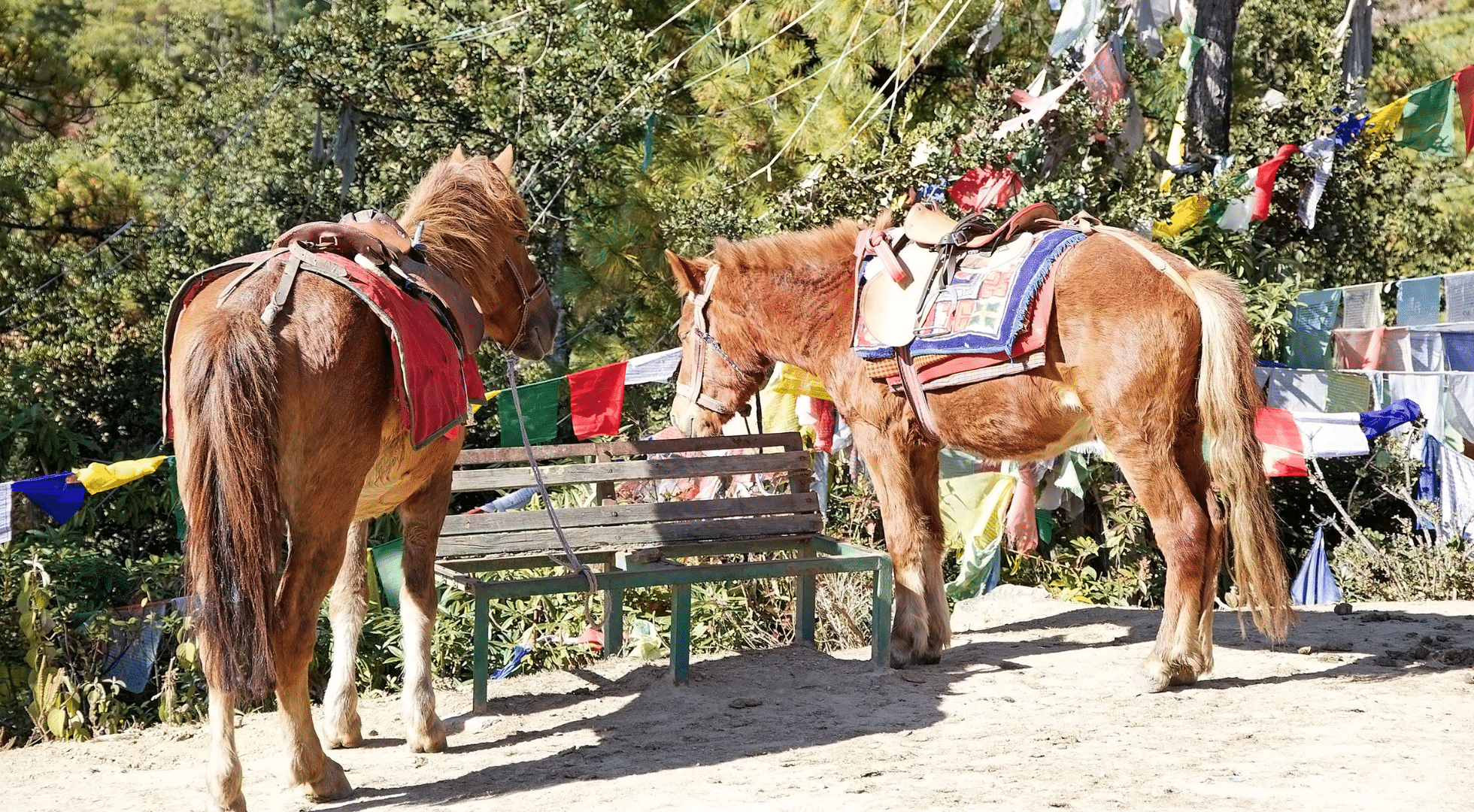
Bhutan’s pursuit of GNH serves as a model for the world, demonstrating that happiness and well-being can be fostered through a holistic approach that prioritizes not just economic growth but also cultural preservation, environmental sustainability, and spiritual development. Whether Bhutan remains the “Happiest Place on Earth” is debatable, but there’s no denying that the country offers valuable lessons for the rest of the world. Here are some key takeaways:
- Prioritizing Well-being Over Material Gain: Bhutan’s focus on GNH challenges the traditional paradigm of development solely measured by GDP. It emphasizes the importance of social well-being, environmental sustainability, and cultural preservation as essential components of a happy and fulfilling life.
- Living in Harmony with Nature: Bhutan’s commitment to environmental conservation serves as an inspiration. The country’s efforts to maintain a high forest cover and its pledge to remain carbon negative demonstrate the importance of protecting our planet for future generations.
- The Power of Community: The strong sense of community in Bhutan fosters social support and a safety net for individuals. This sense of belonging contributes significantly to the overall well-being of the Bhutanese people.
- Finding Joy in Simplicity: Bhutanese culture celebrates the simple pleasures in life. The focus on family, community, and spiritual practices creates a foundation for happiness that transcends material possessions.
- Balancing Tradition and Progress: Bhutan’s approach to modernization provides a valuable lesson. The country embraces measured development that respects its cultural heritage and ensures that economic growth does not come at the cost of its unique identity.
While Bhutan’s path to happiness may not be easily replicated by all nations, it serves as a powerful reminder that true happiness goes beyond material wealth. By incorporating some of these core principles, societies worldwide can strive to create a more sustainable, fulfilling, and joyful future for all.
Experiencing Bhutan for Yourself
Bhutan is a destination unlike any other. It’s a place where breathtaking natural beauty meets a rich cultural heritage and a unique philosophy of life. For those seeking an authentic experience and a chance to reconnect with themselves and nature, Bhutan beckons. However, it’s important to be a responsible traveler. Respect the local customs, minimize your environmental impact, and support sustainable tourism practices. By doing so, you can contribute to preserving the magic of this extraordinary kingdom for generations to come.
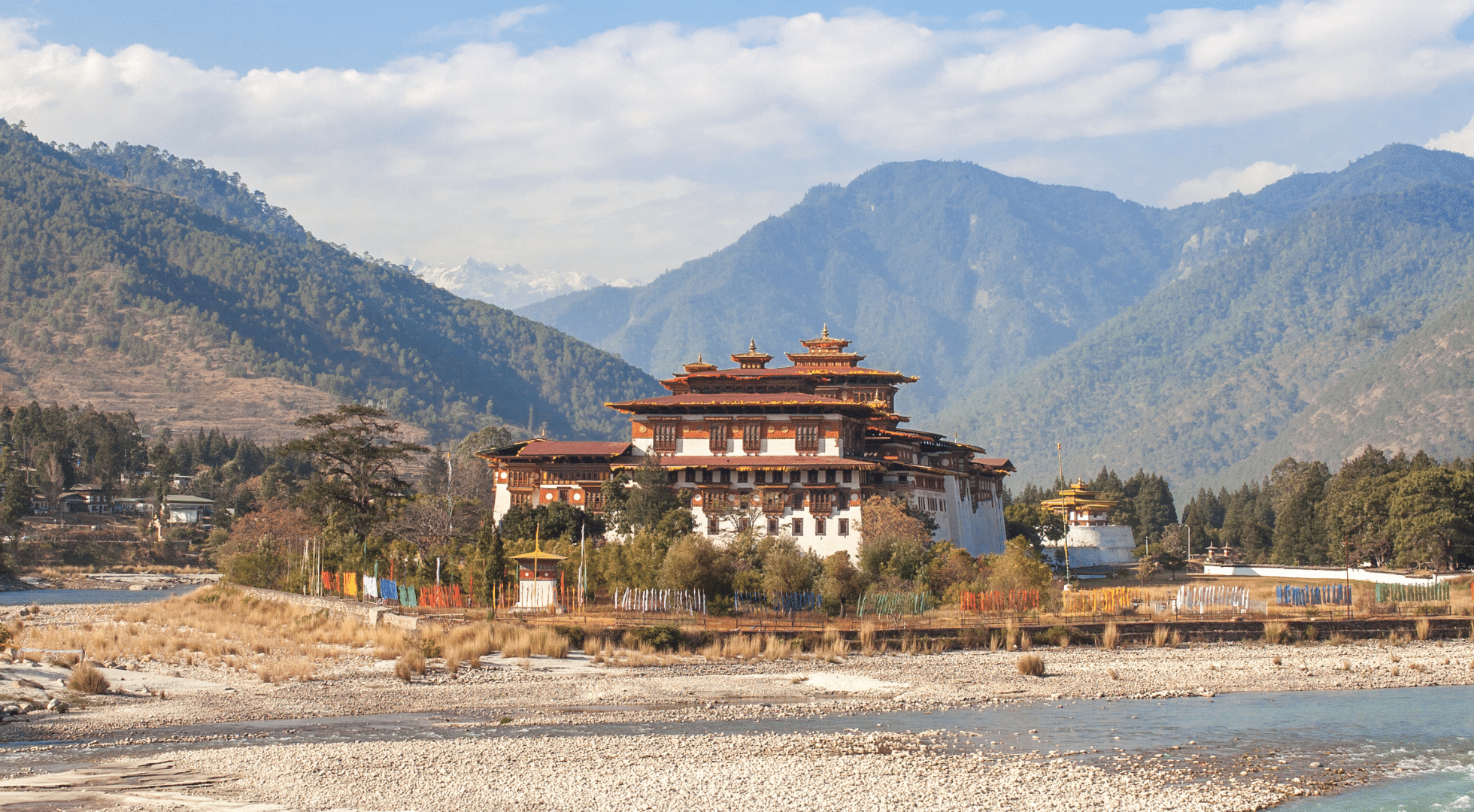
Embark on a guided group tour to Bhutan with Holiday Tours, starting from only MYR11,499. There are departing groups from Kuala Lumpur as well as Penang and the packages come inclusive of return flights with airport tax and fuel, accommodations, full board meals, English speaking guide, local guide and driver tipping, pony ride to Tiger Nest, baggage allowance of 20kg for economy and 30kg for business class and most importantly, Bhutan Visa fees.
For more information, visit Holiday Tours at the links below:
- 7 Days 5 Nights Bhutan (Departing from Kuala Lumpur)
- 6 Days 4 Nights Winter Bhutan (Departing from Penang)

